


The Impact of Land Conversion on Primate Habitats
International Journal of Primatology
Annals of the Brazilian Academy of Sciences
Revista Brasileira de Meteorologia.
Impact of Soil Moisture over Palmer Drought Severity index and its Future Projections in Brazil.
Brazilian Journal of Water Resources
Impact of soil moisture on crop yields over Brazilian Semiarid
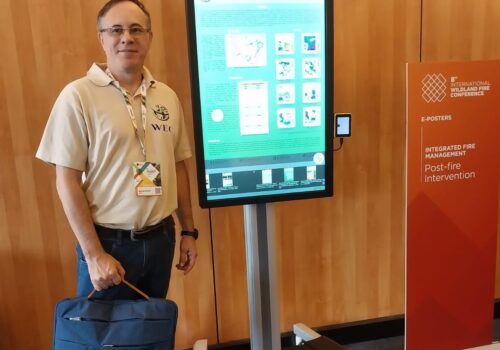
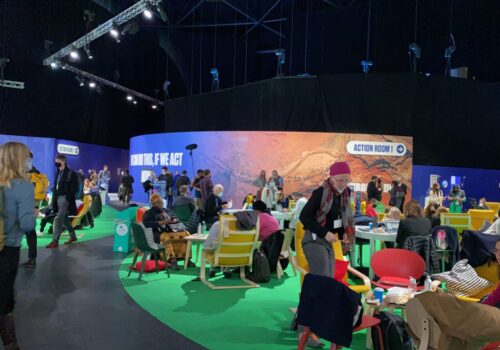
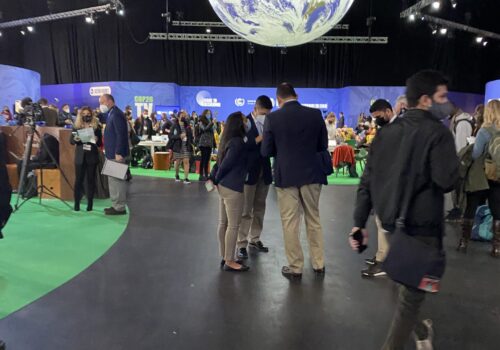
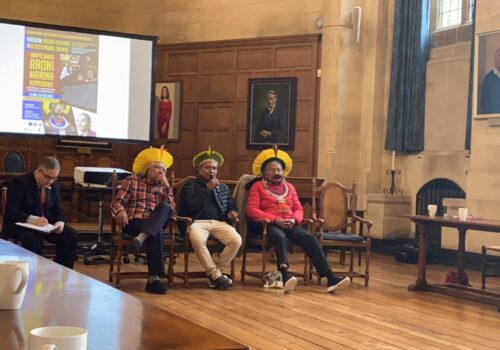
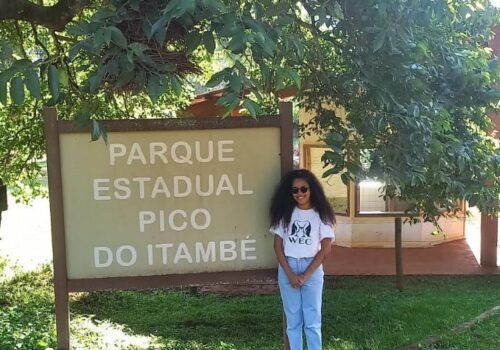
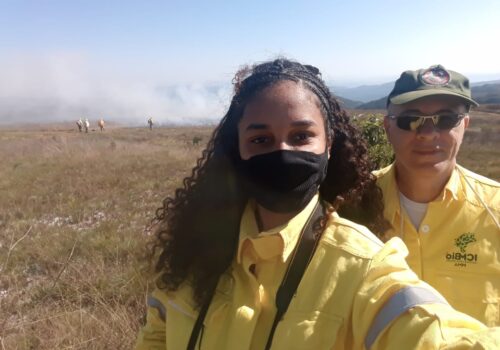
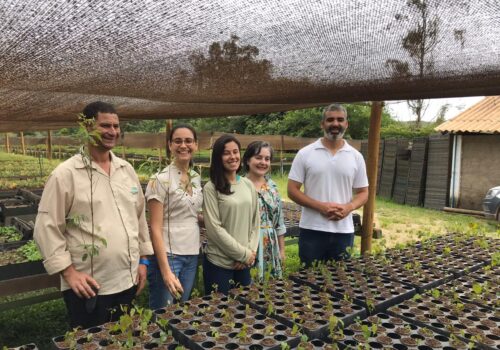
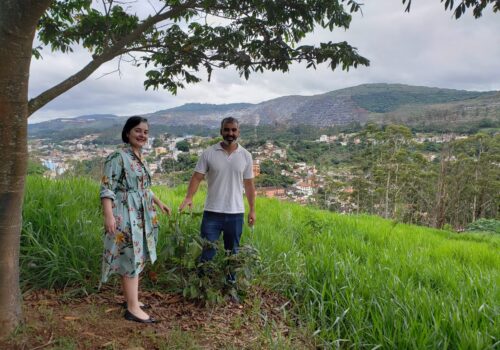
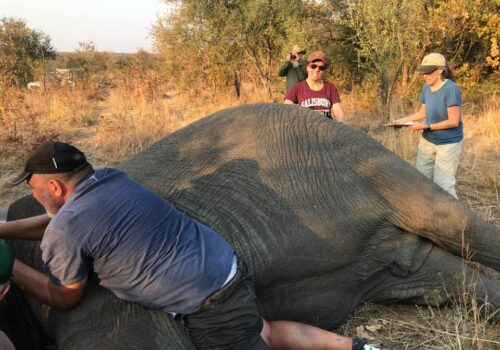

Paulo Sato is an environmental technician with extensive experience in the recovery of degraded areas, reforestation, nursery of seedlings and environmental education.
He worked in Campos do Jordão State Park in the state of São Paulo for 7 years and was the technician responsible for important projects such as the “Jovem Viveirista” Social and Environmental Project for low income adolescents which emphasized Atlantic Forest seedling production, environmental education, and cultivation of organic vegetable gardens. He specialized in the production of Araucarias seedlings, one of only two Brazilian conifers.
Dr. Luciana Pires is a Fluid Dynamicist researcher. In 2015 she began to direct major part of her career towards the problem of climate change. In 2017 she founded the World Environmental Conservancy, Inc. where she oversees the principal programs of the organization which include protection of environmentally sensitive forested areas in North and South American, environmental education, and global meteorology research focusing on the Antarctic, Amazon and Mata Atlantica Forests.
She networks with distinguished scientists around the world, having lived, studied and worked in Germany, the UK and the USA in addition to her home country of Brazil; she has participated in research development meetings sponsored by the NSF (National Science Foundation of the USA) at universities and ministries in Thailand, Laos, Vietnam, and Cambodia; she has delivered academic presentations in several other countries including Portugal, Italy, Austria, Peru and Switzerland. She has over 22 years of experience in research involving engineering and geophysics fluid mechanics as well as atmospheric boundary layers, turbulence and their applications to complex terrain and continent-ocean interactions. She received the 2010 Best Ph.D. Thesis Award in Geophysics from CAPES (Agency for the Coordination and Support of Graduate Education of the Ministry of Education in Brazil), for her work, “Study of the internal boundary layer downwind of coastal cliffs with application to the Brazilian Launching Center of Alcântara”, conducted at INPE (Brazilian National Institute for Space Research) 2004-2009.
She has had the opportunity to utilize state-of-the-art technologies such as PIV (Particle Image Velocimetry) and HWA (Hot Wire Anemometer) for measurements in wind tunnels and analysis of data from anemometric towers, as well as to use radiossondes, satellite images, and DNS (Direct Numerical Simulation), Large Eddy Simulation (LES) etc. She has applied this background and expertise to studies of wind and marine energy generation, aerospace meteorology, and micrometeorology in the Alcantara Launching Center, as well as the Amazon, the northeast and southeast of Brazil regions, and Antarctic.
She grew up in Minas Gerais, Brazil, received her Ph.D. in Meteorology, with emphasis in Geophysical Fluid Mechanics, from the National Institute for Space Research (INPE), Brazil, 2009. Additionally, she completed her first year of a doctoral program in Engineering Mechanics, with emphasis in Aeronautics, at the Federal University of Minas Gerais (UFMG), Brazil. Her first postdoctoral research appointment was conducted at the Laboratory for Environmental Physics at the Center for Atmospheric Biogeosciences of the University of Georgia (UGA), USA. Beginning January 2013, she spent 3 months at the National Aeronautics and Space Administration (NASA) as a visiting scientist at the Center for Climate Science of the Jet Propulsion Laboratory (JPL) in Pasadena, California. Her second postdoctoral research appointment was completed at the School of Engineering at Cardiff University, UK, in the Hydro-environmental Research Centre (HRC), in 2014.
Ruimar Freitas received his degree in Social Communication and Marketing from the Universidade Adventista of São Paulo. He participates in the development of advertising campaigns in education projects, development of branding and graphic logos, packaging development, as well as other content for print and digital media.
BSc in Environmental Sciences from Bindura University of Science Education (2006), Zimbabwe, majoring in Wildlife and Rangeland Management. Post Graduate Diploma in Resource Conservation Biology (2013) from University of the Witwatersrand, Johannesburg, South Africa. MPhil (2017), also from University of the Witwatersrand, Johannesburg, South Africa. Currently, he is a PhD fellow at the University of Zimbabwe, a member of the African Human – Elephant Conflict working group since 2017, and also a member of the Southern Region Elephant Management Committee.
After his graduation in Data Processing from the Technology College of Americana (2001), Marcelo Romão Oliveira obtained a specialization in Meteorology degree from the Airspace Control Institute of the Brazilian Air Force. He was a meteorologist at Infraero and an instructor of aeronautical meteorology at TAM Airlines. At National Oceanic and Atmospheric Administration (NOAA) / National Centers for Environmental Prediction (NCEP) – (Washington / USA), he conducted training courses in synoptic and operational meteorology for South America. He participated in three Antarctic operations where he provided meteorological support services to the naval operations of the Brazilian Antarctic Program (Proantar), which developed several studies on climate and meteorology of the Antarctic Peninsula. He has been an operational analyst for meteorology at the National Natural Disasters Monitoring and Alert Center (CEMADEN), the Brazilian government agency responsible for sending alerts of landslides, floods and mudslides, for four years. Currently he works with the monitoring of smoke and fire risk in Amazon.
Krista Douglas graduated with a B.A. in International Studies from the University of North Carolina at Chapel Hill. She enjoys exploring the outdoors and has volunteered with the Appalachian Trail Conservancy. She contributes both writing and editing services for various publications.
Gregory Marques is an web designer with extensive experience in the website development, graphic design and systems analysis. He is the chief executive officer (CEO) of Digibear in Brazil,
Carly Masters is a published author, having a passion for creative and technical writing, and has experience with both proofreading and copyediting documents. The environment continues to inspire her, and she wishes to do her part to take care of it in any way she can.
Graduated in Accounting Sciences from UNIOPEC Education and Management Sciences in Indaiatuba, SP. Previous employment includes Sasa Sistemas Ambientais Ltda, a subsidiary of the multinational corporation Veolia, a leading environmental resource management provider. Fabiana is a lover of animals and nature and she is the mother of little Amelie.
Nisha Patel has received a Bachelor in Science in Health Promotion and Behavior from the University of Georgia and has minored in Environmental Health Science. She has experience with research and technical writing. She has worked with environmental non-profits and wants to work to improve public health through the conservation and protection of the environment and the implementation of environmentally benefical policies.
BSc. in Botany, School of Plant Biology and Biotechnology from University of Benin, Nigeria, with First Class Honours (2002); MSc. in Environmental Diagnosis at the Department of Science and Technology of Imperial College London (2005); DSc in Physical Geography at the School of Geography of Queen Mary University of London (2010); post-doc and visiting research at Hydro-environmental Research Centre of School of Engineering of Cardiff University from 2010 to 2016. Currently is a Teaching Fellow of the Department of Geography, School of Global Affairs, King’s College, London, developing research mainly on providing a better understanding of contaminant cycling, particularly metals and pesticides, and the role of sediment changes on the establishment of ecological attributes in restored saltmarshes following tidal inundation. More recently, her research has also involved assessing the hydro-environmental impacts of marine renewable energy extraction.
Ludimila Ferreira received her undergraduate degree in Physics from Sao Paulo State University (UNESP) and her master’s degree in Meteorology from the National Institute of Space Research (INPE), where she studied the relationships between variability modes in the tropical Pacific and Atlantic Oceans and the precipitation over Northern Northeast Brazil (NNEB). She received her PhD in 2011 from University of São Paulo (USP, Department of Environmental Engineering) with “Thermal fields in the city of São Carlos” being the subject of her thesis. In 2010 she became a member of the faculty of the Federal University of Ouro Preto (UFOP, Department of Physics) and in 2014 joined the meteorological department of the State University of Amazonas (UEA). Currently, she is on the faculty of the University of Franca in Brazil.
BSc in Mechanical Engineering from PUC-MG (1992), master’s at Mechanical Engineering from Pontifícia Universidade Católica de Minas Gerais (2000) and Phd at Aerospace Engineering from Instituto Tecnológico de Aeronáutica (2003). Currently, is an Associate Professor at the University of Sao Paulo, developing projects in fluid mechanics, focusing on boundary layer flows, hydrodynamic instabilities, Direct Numerical Simulation, and Large Eddy Simulation.
Kellen Carla Lima received her PhD in Meteorology from the National Institute of Space Research. Currently, she is Adjunct Professor III in the School of Sciences and Technology of the Federal University of Rio Grande do Norte (UFRN). She is part of the faculty of the Post-Graduation Program in Climate Sciences (PPGCC) of UFRN in the area of Geosciences, with emphasis on Mesoscale Meteorology, Synoptics, Climatology and Ocean-Atmosphere Interaction.
Amanda Ramalho Vasques received a PhD in Physical Geography from the University of São Paulo (USP), São Paulo (2009), with a sandwich period at the Center for Geographical Studies of the University of Lisbon (CEG / UL), Portugal (2008) under a CAPES scholarship. She has worked as a researcher for more than a decade on the redevelopment of brownfields (https://www.epa.gov/brownfields/brownfield-overview-and-definition) with support of FAPESP – masters, doctorate and postdoctoral fellowships. She is currently Coordinator of Postgraduate Courses in Education at the UNASP Virtual Campus .
Andrea Presotto is the recipient of two PhDs, one from the University of Sao Paulo, Brazil and a second one from the University of Georgia, USA. Dr. Presotto’s research focuses on how landscape features and design influence the navigation of diverse species as determined by applying geospatial analysis, remote sensing, and spatial statistics on patterns of movement. The applied aspect of her work includes creating innovative methods to improve the well-being of wildlife and reduce human-wildlife conflicts. Her current research projects involve African elephant movement in Zimbabwe, habitat suitability model for the colobus monkey in Diani Beach, Kenya (Colobus Conservation,Limited), and black capuchin monkey navigation in Brazil. Currently, she is a visiting assistant professor at Salisbury University in Maryland, USA.
BSc in Mechanical Engineering and Mechatronics from PUC-MG (2002), DSc in Aeronautical Engineering from USP at São Carlos (with a period at University of Stuttgart, 2007), and post-doc in Aerodynamics from University of Stuttgart (2011).
Currently, is an assistant professor at PUC-Rio and researcher at Fluids Engineering Laboratory, developing projects in fluid mechanics, focusing on boundary layer flows, hidrodynamic instabilities, wind and water tunnel instrumentation, signal processing and pulsating flows
João Paulo Martins got his PhD at the University of Lisbon which focused on the planetary boundary layer both from modelling and observational perspectives. He got to spend a year at the NASA Jet Propulsion Laboratory, working at the Atmospheric InfraRed Sounder Science Team. He then worked a few months as Visiting Scientist at the University of Stockholm (Sweden) in the validation of the planetary boundary layer height in Climate Models. Later on he joined the Land Surface Analysis Satellite Application Facility (LSA-SAF) as a PostDoc researcher until the present. He is now working in the calibration and validation of Land Surface Temperature retrieval algorithms using radiative transfer model simulations. His range of current research interests also includes GNNS meteorology, and the study of extreme events such as heat waves and droughts.
Carlos Nobre is a Senior Researcher with University of São Paulo’s Institute for Advanced Studies, scientific director of the Institute of Climate Studies at Federal University of Espírito Santo, chair of the Brazilian Panel on Climate Change, International Secretary of the American Geophysical Union (AGU) (2018-2020), and chair of the Brazilian Panel on Climate Change. He is a former Science Director of the Research Project “National Institute of S&T for Climate Chante”. He was a Senior Scientist at the National Institute for Space Research (INPE) of Brazil. He is the creator of Brazil’s National Center for Monitoring and Alerts of Natural Disasters and of INPE’s Center for Earth System Science and was Director of INPE’s Center for Weather Forecasting and Climate Studies (CPTEC). Nobre’s work focused on the Amazon and its impacts on the Earth system. He chaired the Large-Scale Biosphere-Atmosphere Experiment in Amazonia (LBA), an international research initiative designed to create the new knowledge needed to understand the climatic, ecological, bio-geochemical, and hydrological functioning of Amazonia, the impact of land use and climate changes on these functions, and the interactions between Amazonia and the Earth system. He has been also a member of the Intergovernmental Panel on Climate Change (IPCC), He was National Secretary for R&D Policies at the Ministry of Science, Technology & Innovation of Brazil and President of Brazil’s Agency for Post-Graduate Education (CAPES). He was a member of UN Secretary-General Scientific Advisory Board for Global Sustainability. He is a foreign member of the US National Academy of Sciences, and member of the Brazilian Academy of Sciences and World Academy of Sciences.
He has graduate at BS in Meteorology from University of Sao Paulo, Master of Science from University of Sao Paulo (1981) and PhD in Meteorology from National Institute of Space Studies (1995). He has great experience in Amazonia (since the 80s), especially studying the coupling between land-use (deforestation) and climate, for regional and global scale. Actually he is senior researcher at University of Taubateh at Sao Paulo state. He is an expert on Amazonian climate.
Dr. Lee received his B.S. at Northwestern University and M.D. at Northwestern University Medical School, with residency in Internal Medicine at Emory University School of Medicine, specialty training in Allergy and Immunology at Northwestern University Medical School. He is a recipient of the Alpha Omega Alpha Medical Society award. He is a Diplomate of the American Board of Allergy and Immunology, a Fellow of the American Academy of Allergy, Asthma & Immunology, and past President of the Southeastern Allergy, Asthma, and Immunology Society. Prior to joining Peachtree Allergy and Asthma Clinic, his prior professional responsibilities include serving as Training Program Director and Section Head of Allergy-Immunology at Emory University School of Medicine. He has been an investigator in numerous asthma and allergy research studies, and has authored several book chapters and scientific papers regarding treatment of asthma and other immunologic disorders.
Dr. Gielow holds a degree in Chemical Engineering from the Federal University of Paraná (1963), a Master’s degree in Chemical Engineering from the Federal University of Rio de Janeiro (1965) and a Ph.D. in Chemical Engineering from the University of Florida (1972). He is a Senior Researcher retired from the National Institute of Space Research. He has experience in the area of Geosciences with emphasis in Micrometeorology, working mainly in the following subjects: heat transports, mass and amount of movement, soil-vegetation-atmosphere interaction, forest floodplains, cliffs, the Amazon and the Pantanal Sulmatogrossense.
Graduated in Physics from the Sao Paulo State University (UNESP) with scientific initiation on treatment of chemical waste (2004). Dr. Freitas obtained a master’s degree in Meteorology at National Institute for Space Research (INPE). Her doctorate in 2011 at INPE addressed the theme: Climate change of stationary Rossby wave. In 2013, Dr. Freitas was a visiting researcher at the Commonwealth Scientific and Research Organization (CSIRO) – Australia where she performed a research project with the general circulation coupled model CSIRO Mk3L (CMIP5 participant). She was a postdoctoral fellow in 2014 at the University of Sao Paulo (USP, Institute of Astronomy, Geophysics and Atmospheric Sciences) working with the regional model RegCM4. Dr. Freitas is currently adjunct professor at Federal University of Itajubá (UNIFEI), collaborating researcher at the Center for Research Support – CLIMATE CHANGE (INCLINE – USP), performing in the areas of Climatology, Dynamic Meteorology, Climate Change and Climate Modeling.
Native of Belem do Para, Amazon coastal region, Mirna Meyer has training in Tourism, Spanish and English languages as well as in Economics at Brazilian and German Universities.
She has worked as a hostess to welcome people from around the world at the Hotel Otton Palace in Rio de Janeiro and has worked as a translater for many years.
For several years Mirna dedicated herself to raising her 2 children and after that she began to focus on social causes, serving as volunteer and translater for the non-profit „Circulo de amigos“.
Currently she works for the „Deutsches Rotes Kreuz“ (German Red Cross) at „Katolische Grundschule Fretter“ (Catholic Elementary Scholl Fretter) of Finnentrop in Germany. She has unlimited enthusiasm for preservation of the forest of her birthplace, the Amazon in Brazil.
